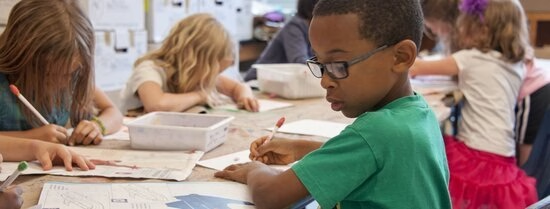
What are we researching?
We investigate equity in education and look at the mechanisms involved. Our focus is on three different themes:
- How can teachers better teach in super-diverse classes?
- How can students best be guided through the transition from secondary school to higher education or university?
- How can you help parents to support their children's language development?
Why are we doing this research?
The research group wants to make a societal impact: equity in education is an important societal issue. There are too many children who, because of their background, do not get the opportunities they deserve because, for example, they experience problems with the (linguistic) demands of education or follow a school career that does not optimally fit their talents. Our research provides insight into the underlying mechanisms and with this research, we want to offer tools to improve equity in education.
How are we doing this research?
Our group is characterized by various methods: small-scale, qualitative, large-scale, quantitative, and quasi-experimental research. By applying all methods, we can provide reliable and valid insights into the mechanisms of inequality of opportunity.
How does our research make an impact?
By working together with professionals in the field, we can conduct research into applications that promote equity. For example, commissioned by NRO, we are doing research on professional development for for teachers in the area of culturally responsive teaching. We also work with European universities, including Erasmus University, on interventions that ensure that students from different backgrounds experience sense of beloning. Among other things, we are investigating whether having a student peer mentor from the same background contributes to students' sense of belonging at university. Finally, we are working with partners such as Stichting Voorlees Express on a study to involve parents from different backgrounds in their children's language development. We do this, for example, by using digital picture books and multilingual reading aloud videos.
